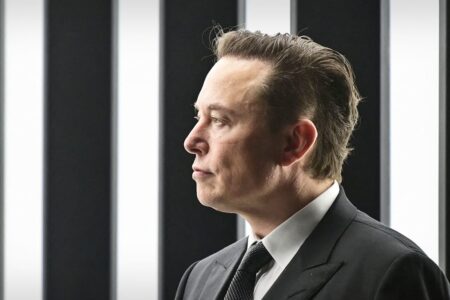The billionaire CEO says the US will default on its debt. The question for him is when, not whether, this default will happen.
This is a controversy that worries Washington and worries Wall Street and the entire business community.
Will the United States default on its debts due to political differences and positions between the White House and Republican House Speaker Kevin McCarthy?
The expected date of default approached last Tuesday. Income tax returns appear to be worse than expected. According to Goldman Sachs analysts, the fateful day will be in early June, not early August.
For now, Democrats and Republicans, who hold the key to averting this catastrophic scenario for the US and global economy, continue to blame each other for the current situation and inflexibility.
McCarthy outlined the Republicans’ plan to avoid a US default on its debt on the New York Stock Exchange on Monday, April 17. Its goal is to achieve a reprieve of one year. This requires raising the debt ceiling. He said the big old party, his own, would only vote for it if the bill gets budget cuts and measures like committing to work to receive solidarity benefits.
raising the debt ceiling…
Two days later, he brought his 320-page bill before lawmakers. He said he wanted to vote on it from next week. He wants to raise the debt ceiling by $1.5 trillion. The current debt of the United States reached $31,400 billion in January, the maximum beyond which the country can no longer issue new securities to finance itself.
Temporary emergency measures have been taken to continue paying off the debt, but without an agreement in Congress to raise that ceiling, the United States will find itself defaulting, unable to meet its financial obligations, perhaps as quickly as it was this summer. This would send US and global finance into the unknown. Federal Reserve Chairman Jerome Powell stressed in early March that raising the debt ceiling was the only appropriate way out that would allow the country to pay its bills.
McCarthy wants to cut expenditures by $131 billion in 2024, returning to the 2022 level, or $1.47 trillion. He wants to limit the growth of federal government spending to 1% annually for the next ten years. He did not provide further details but said health insurance programs for people over 65 and pensions would not be affected.
The right-wing Republicans managed to score two major wins: the plan reconsiders the budget increase of the Internal Revenue Service (IRS), aimed at better combating tax evasion and, above all, new taxes. Loans for Clean Industries, passed through the Inflation Reduction Act (IRA) last summer.
McCarthy argued that the cost of these tax breaks could rise to $1.2 trillion, according to Goldman Sachs.
Unsurprisingly, McCarthy’s plan came under fire from the White House and Democrats. President Joe Biden has blasted McCarthy for the vagueness of his proposals, knowing the Republican leader must jump through hoops to reconcile moderates and extremists in his party. “Show a plan, not speeches,” quipped Biden, who plans to run again in the 2024 presidential election.
Press Secretary Karen Jean-Pierre said of McCarthy’s proposal: “Speaker McCarthy sided with the extremist MAGA wing of his convention and issued a blueprint for the destruction of hard-working American families.” “House Republicans from the MAGA are holding the American economy hostage in order to take a hatchet for the programs that Americans rely on every day to make ends meet.”
matter of when
She argued, “House Republicans must avoid default and stop playing economic brinkmanship with the American people’s livelihoods and retirement. The American people have made clear the economic vision they support.”
The White House continued to criticize McCarthy on social media.
“Default on America’s debt. Made you pay. This is the only House Republican plan on the table,” the Biden administration said on the White House Twitter account on April 18.
These criticisms have not escaped Elon Musk, the serial entrepreneur and CEO of electric car maker Tesla. The billionaire, who has become the most powerful president in the world, took advantage of the White House’s tweet to send a deeply troubling message.
According to him, it is inevitable that the United States will default on its debt. The question is when will this happen. The billionaire, who has become a conservative icon for a few months now, seems to believe Democrats and Republicans won’t play together and so rules out any deal at the last minute.
“Looking at federal expenditures, it’s about when, not if, we default,” Musk said, without elaborating.
A default by Washington is a scenario that global investors and markets dread, as it would add to an already troubling economic landscape: inflation remains at levels not seen in 40 years, making consumers even more cautious. If consumption weakens, economic activity will suffer greatly.
Raising the debt ceiling is a technical a priori measure, but one that requires congressional approval, which generally does so without much debate. Since 1960, the US debt ceiling has been raised 78 times, according to the US Treasury Department.
